Inserts are a great way to customize your diaper usage and make it more efficient. They come in different shapes, sizes, and materials so that you can choose the best suits your needs.
You can use inserts with both disposable and cloth diapers for several reasons. We will help you understand the various aspects of cloth diapers with inserts, including what they are, how to use them, how to choose the right size, and how to wash and dry them.
Will also cover the benefits and drawbacks of using cloth diapers with inserts so that you are well-informed before making the switch. We have listed six easy ways to use cloth diapers with inserts, making them hassle-free and easy to use.
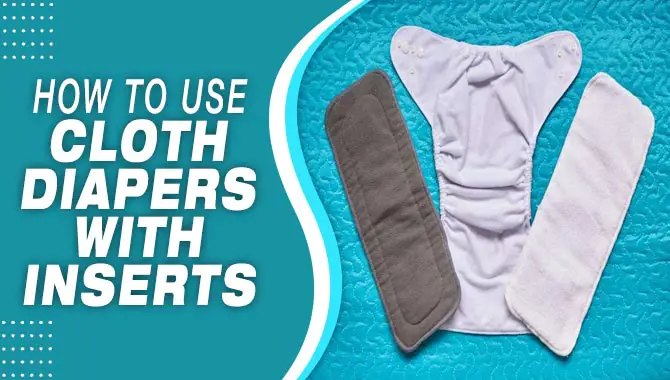
What Are Cloth Diaper Inserts?
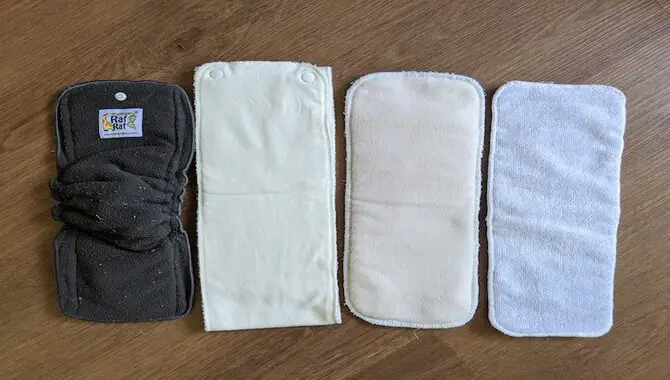
Cloth diaper inserts are the absorbent layer of a cloth diaper that soaks up liquid. These inserts come in various fabrics, including but not limited to cotton, microfiber, and hemp. You can often include them with pocket diapers or purchase them separately to add absorbency to other cloth diapers. If you prefer to wash cloth diaper inserts only some of the time, disposable inserts are also available.
These inserts can help reduce waste compared to full-size cloth diapers. The design of a cloth diaper with a waterproof outer cover and inserts aims to keep your baby dry for up to 12 hours. Changing cloth diapers is an environment-friendly decision and can also prevent rashes caused by disposable diapers. Using these eco-friendly options can also save you money in the long run.
How To Use Cloth Diaper Inserts
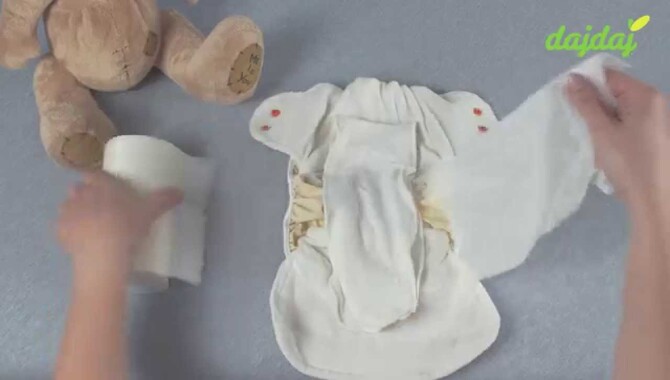
Using cloth diaper inserts can be a great option for parents looking to combine the benefits of cloth diapers with the convenience of disposables. It’s essential to choose the right fabric for the insert. Cloth diaper inserts come in various materials, including organic cotton, microfiber, and hemp. Always use a detergent compatible with cloth diapers and a water softener like borax if the water in your area is hard.
You can wash and reuse cloth diaper inserts with diaper covers repeatedly by giving them proper care. Remember, disposable inserts are also available for those who prefer them. They are the single-use version and can be purchased in rolls of 100. Using cloth diaper inserts can be a cost-effective and eco-friendly solution for diapering your baby.
5 Easy Ways To Use Cloth Diapers With Inserts
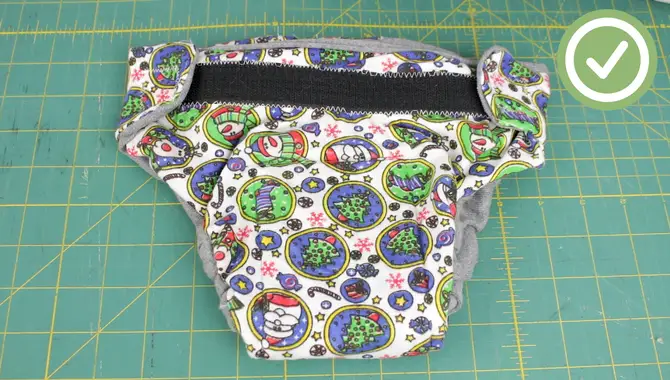
Cloth diapering can initially seem daunting, but it can be an eco-friendly and cost-effective way to care for your baby. One important aspect of cloth diapering is ensuring the diaper is absorbent enough to last between changes. Here are 5 tips for using inserts with your cloth diapers:
1. Use A Fitted Diaper:
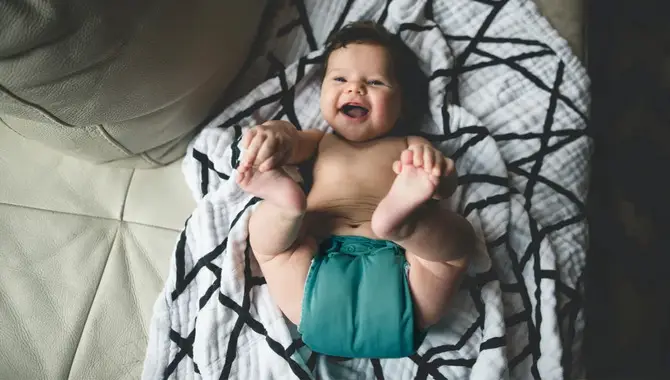
A fitted diaper is a cloth diaper with a snap or Velcro closure to fit around the baby’s waist, chest, or legs. People often use cloth diapers instead of disposable diapers because they absorb more and can be washed multiple times without losing effectiveness.
2. Use An All-In-One Diaper:
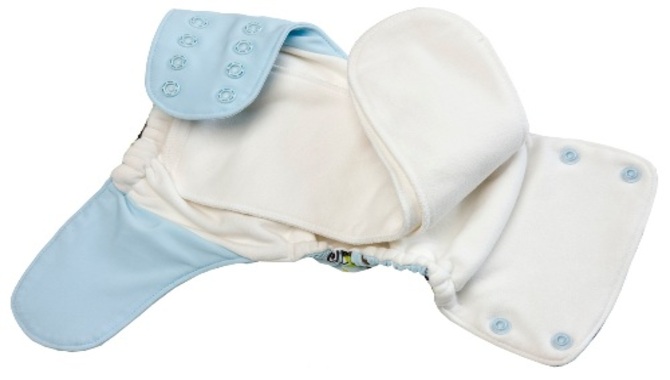
An all-in-one diaper is a cloth diaper that combines the functionality of a diaper with the comfort and convenience of a sleep sack. All-in-ones have adjustable snaps or Velcro along the sides or bottom to accommodate a growing baby. Manufacturers often use soft materials to keep the baby comfortable.
3. Use Inserts:
You can place inserts inside an all-in-one or other type of cloth diaper to increase capacity. Inserts are additional layers of absorbent material. You can purchase inserts individually or as part of a set containing various sizes and shapes.
4. Use Washable Liners:
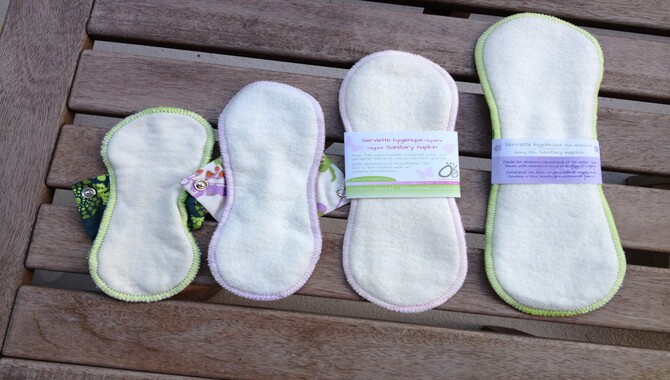
Washable liners are another option for increasing the capacity of your cloth diapering system by adding an extra layer between your baby’s skin and the absorbent material in the diaper itself. You can make them from cotton, bamboo, polyester, hemp, or fleece and you can machine wash and dry them like any other cloth diaper insert.
5. Use Reusable Covers:
Reusable covers are another option for protecting your baby’s delicate skin while they sleep in their cloth diapering system. They come in many different styles and materials (such as fleece, organic cotton blends, microfiber suede, etc.) to protect against irritation and irritation caused by soiled diapers.
Benefits Of Using Cloth Diaper Inserts
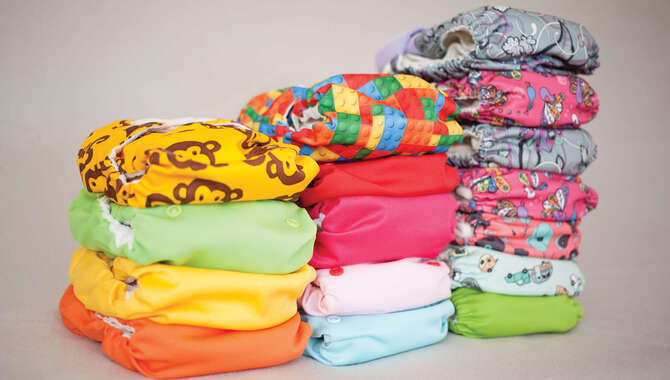
Cloth diaper inserts offer several benefits over disposable diapers. We design them with organic cotton and make them reusable to offer an environmentally friendly alternative to disposable diapers.
Cloth diaper inserts are usually low on chemicals, and some are even biodegradable, which makes them safe for your baby’s sensitive skin. They can be paired with a waterproof outer cover and a cloth or disposable inner insert to keep your baby dry and comfortable.
Cloth diaper inserts generate less waste than disposable diapers, an added advantage for the environmentally conscious. Additionally, they are versatile and can help prevent rashes or skin irritations. Using cloth diaper inserts is an excellent choice for parents who want their babies to stay healthy and comfortable while reducing their environmental impact.
Different Types Of Cloth Diaper Inserts
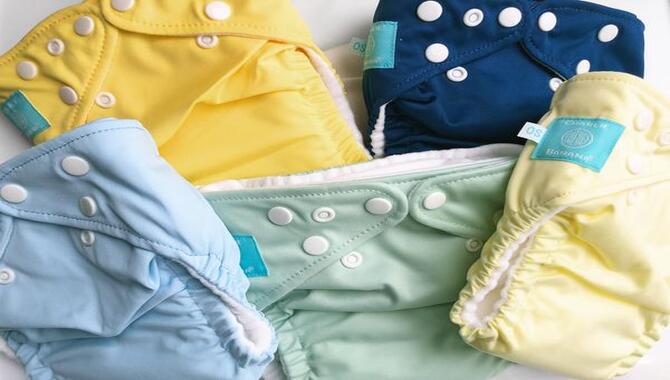
Manufacturers produce different types of cloth diaper inserts from various materials, which are available in the market. The most popular options include microfiber, cotton, bamboo, and hemp. Microfiber has quick-absorbing abilities, but it cannot be placed against the baby’s skin and can hold odor. (active voice)
Cotton diaper inserts are absorbent, breathable, and more affordable than some other materials used to make inserts. Bamboo diaper inserts are soft, antimicrobial, and exceptionally absorbent, but they can also be more expensive than cotton.
Hemp diaper inserts are made of natural fibers that are more durable than other materials and can be very absorbent, but they can also be bulky and costly. You may choose the cloth diaper insert that suits your baby’s needs depending on the absorbency, cost, and performance of the specific diaper insert.
What Are The Drawbacks Of Using Cloth Diapers With Inserts?
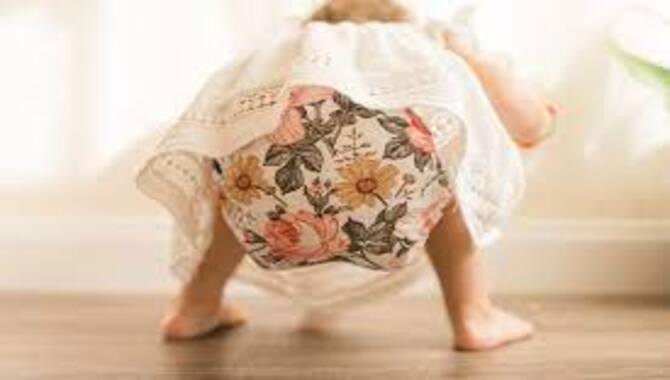
Using cloth diapers with inserts has its drawbacks. Firstly, you may need to change cloth diapers more frequently than disposables to prevent leakage and diaper rash.
This may take a toll on new parents and caregivers and cause neglect and abuse. Secondly, constant washing and laundering of cloth diapers require energy, water, and chemical detergents, which can have an environmental impact.
Additionally, understanding the differences between cloth diaper inserts, doublers, boosters, and soakers can be confusing, especially for new parents still trying to figure out a routine. Compared to disposables, cloth diapers may hold less pee, so frequent changes are necessary.
Lastly, conventional diaper rash creams can clog the cloth fibers of cloth diapers, which leads to poor absorbency and makes them unusable. Despite these drawbacks, many parents still choose cloth diapers for environmental and financial benefits.
Preparation Is Required For Using Cloth Diapers With Inserts
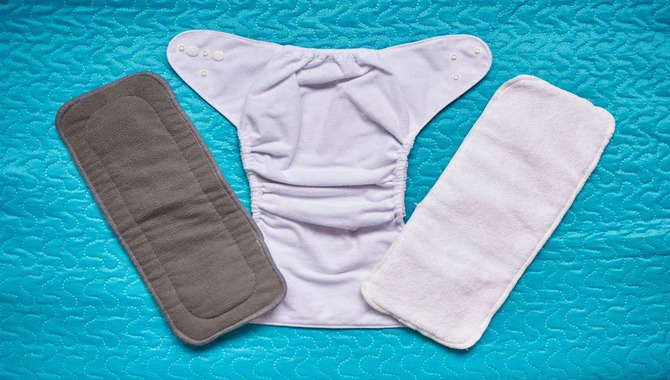
Using cloth diapers with inserts requires some preparation. First, investing in accessories such as a diaper pail, a waterproof wet bag, disposable diaper liners, and a diaper sprayer is essential to make cloth diapering easier. When washing the diapers, use a cloth diaper-safe detergent with no fabric softeners, stain guards, or oils.
Store soiled diapers in a wet bag until you’re ready to wash them (recommended every 1-3 days). Wash the diapers with a small amount of detergent in a prewash cycle and then again on a normal setting with a full amount of detergent.
Skipping fabric softener is recommended, and opting for wool dryer balls can speed up drying time. By following these steps, you can ensure that cloth diapering with inserts is an easy and efficient way to manage your baby’s diapering needs while being environmentally friendly.
How To Choose The Right Size For Your Cloth Diapers And Inserts?
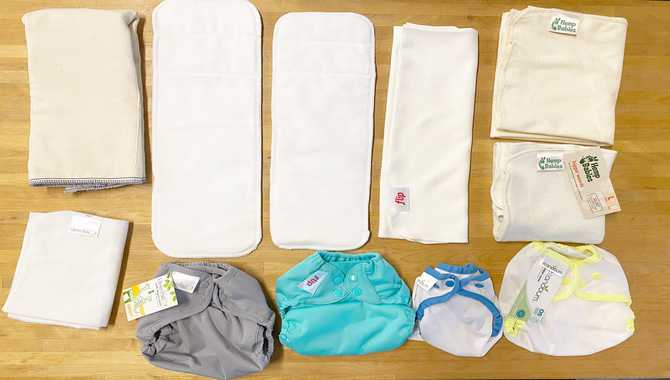
Choosing the right size for cloth diapers and inserts is important in ensuring their effectiveness. You can choose from various materials for diaper inserts, including microfiber, cotton, bamboo, and hemp. Consider your baby’s wetting habits and lifestyle to pick the right material.
Prefold cloth diapers are cheaper, costing $1 to $3 per diaper, while fitted cloth diapers are more expensive and can range from $20 to $25 each. The diaper inserts’ size, shape, and absorbency should also be considered. You can keep your baby comfortable and dry while reducing waste by choosing the right size and material for your cloth diapers and inserts.
How To Wash And Dry Your Cloth Diapers And Inserts?
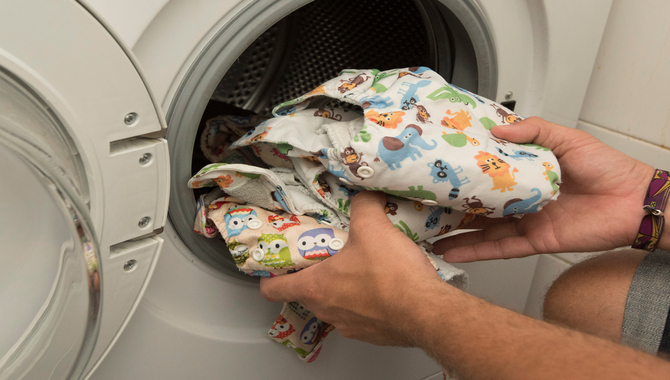
Using cloth diapers with inserts is an eco-friendly choice that benefits the environment and your wallet. It’s essential to maintain proper hygiene when using cloth diapers. Before washing, store dirty cloth diapers in a wet bag to avoid odors and bacterial growth.
You should wash cloth diapers every 1-3 days, depending on the quantity of use. If your baby is formula-fed, we recommend spraying the dirty diaper before washing it. Use a cloth diaper-safe detergent and add a prewash or light setting. This is to ensure that the diapers are washed properly and stay durable. After washing, you can machine-dry the cloth diapers or hang them to dry.
Remember that cloth diapers offer many benefits, but only when cleaned and reused properly. Correct washing and drying will maximize the life of the cloth diapers and inserts.
Conclusion
Cloth diaper inserts are a great solution for those who want to reduce the environmental impact of disposable diapers. To use cloth diaper inserts, you must prepare by choosing the right size and fabric and how to wash them properly. There are many easy ways to use cloth diapers with inserts, and they have many benefits, such as cost savings and comfort. It’s important to note that there are also some drawbacks.
We have provided tips on using cloth diapers with inserts, including instructions on choosing the right insert for your particular needs. Following these simple tips, you can enjoy using cloth diapers effectively and safely.
Frequently Asked Questions:
How Do I Use Cloth Diapers With Inserts?
To use cloth diapers with inserts, lay the insert flat inside the cover. Ensure you center it and cover the diaper area as much as possible.
If using a pocket diaper, stuff the insert into the pocket. Adjust the insert to ensure a snug fit around your baby’s legs and waist. When changing your baby’s diaper, remove the soiled insert and replace it with a new one, then wash the cloth diaper and inserts according to the manufacturer’s instructions.
Are There Any Drawbacks To Using Cloth Diapers With Inserts?
While cloth diapers with inserts can be an eco-friendly and cost-effective alternative to disposable diapers, there are some potential drawbacks. These can include a higher upfront cost, the need for frequent washing, and potential leaks or staining.
Additionally, some daycares or other caregivers may need to be more familiar with cloth diapering and may be hesitant to use them. However, many parents find that the benefits of using cloth diapers outweigh these potential drawbacks.
How Much Do Cloth Diaper Inserts Cost?
The cost of cloth diaper inserts can vary depending on the brand and type. Some inserts can cost as little as $1 per insert, while others can cost as much as $10. It’s best to do some research and compare prices before making a purchase. Additionally, some cloth diaper brands offer bundle deals or discounts for buying in bulk, which can help save money in the long run.
hat Is A Good Brand To Buy Cloth Diaper Inserts From?
There are many great brands to choose from when buying cloth diaper inserts. Some popular and well-regarded options include GroVia, Thirsties, bumGenius, and Alva Baby. Reading reviews and researching to find the brand that best fits your needs and preferences is a good idea. Additionally, some cloth diaper brands may offer their inserts, so it might be worth checking out what your preferred brand offers.
What Materials Are Used In Cloth Diaper Inserts?
You can make cloth diaper inserts from various materials such as cotton, bamboo, hemp, and microfiber. Cotton is a popular and natural choice that is absorbent and durable.
Bamboo is known for its softness and sustainability. Hemp is highly absorbent and resistant to bacteria growth. Microfiber is a synthetic material that is highly absorbent but can lose its effectiveness over time. It’s important to choose inserts that best suit your baby’s needs and your personal preferences.

